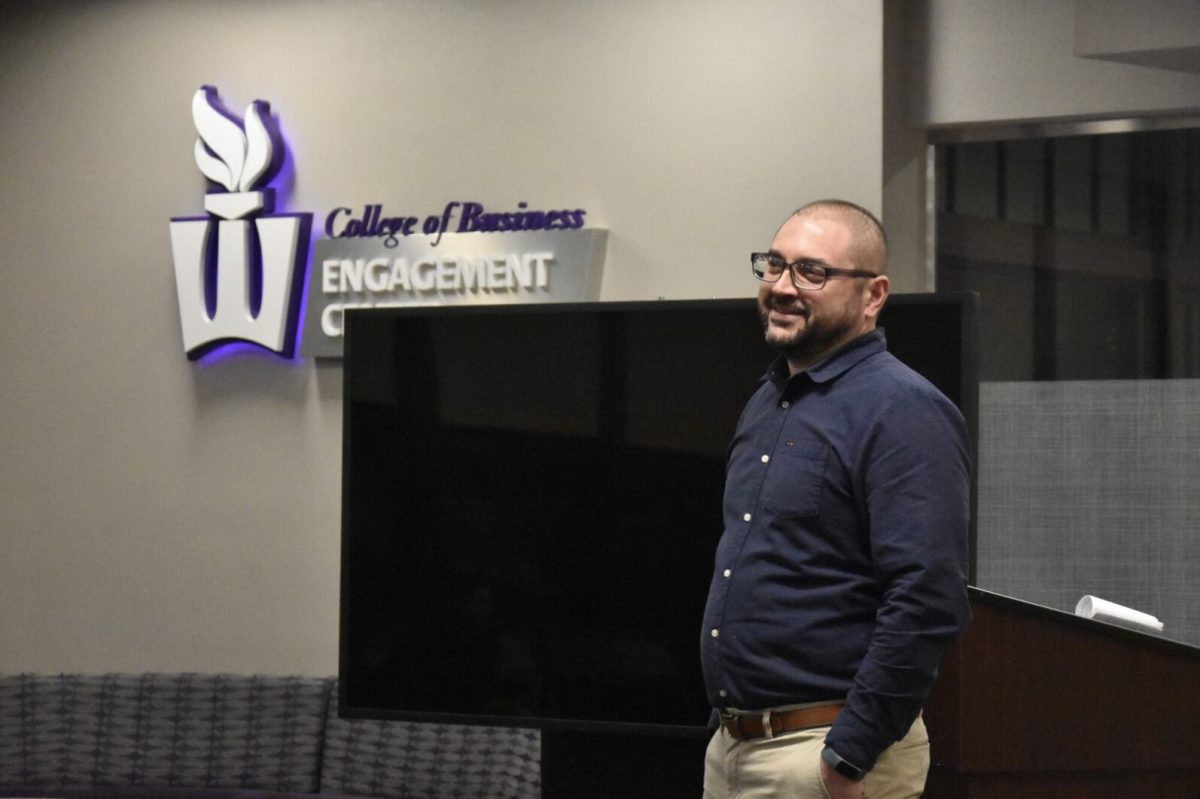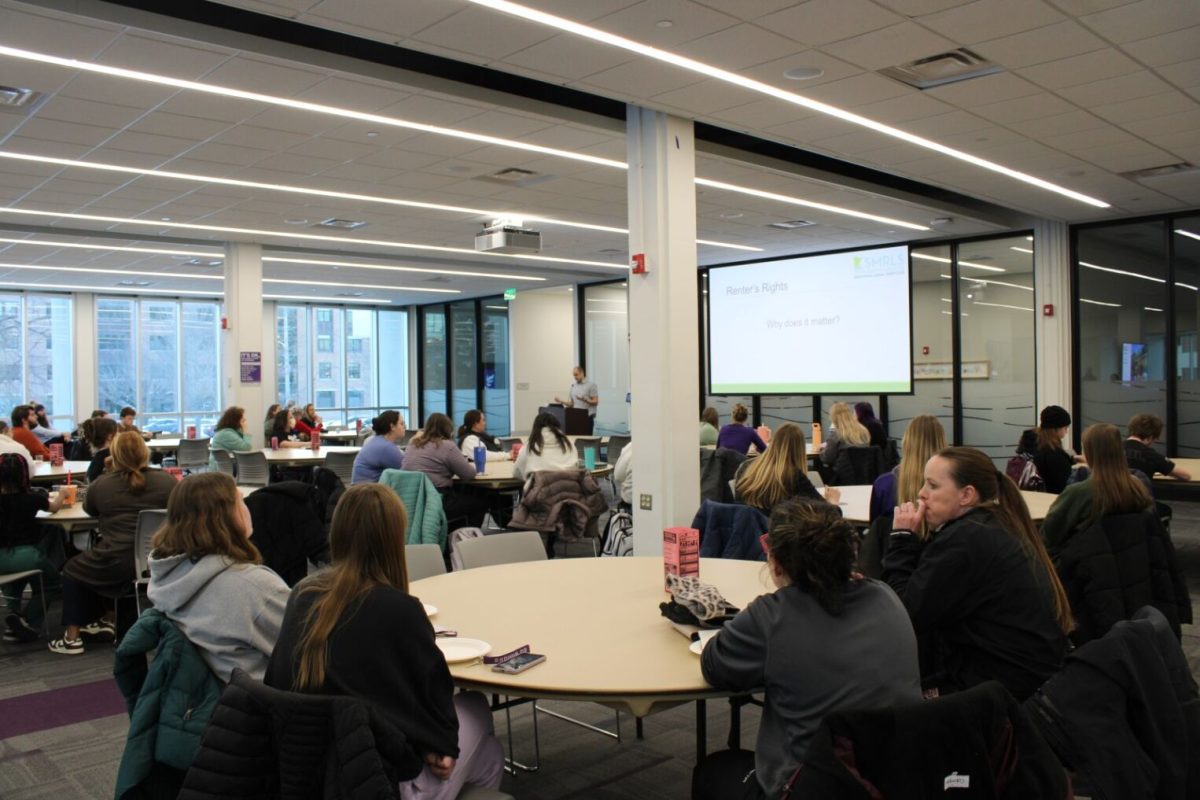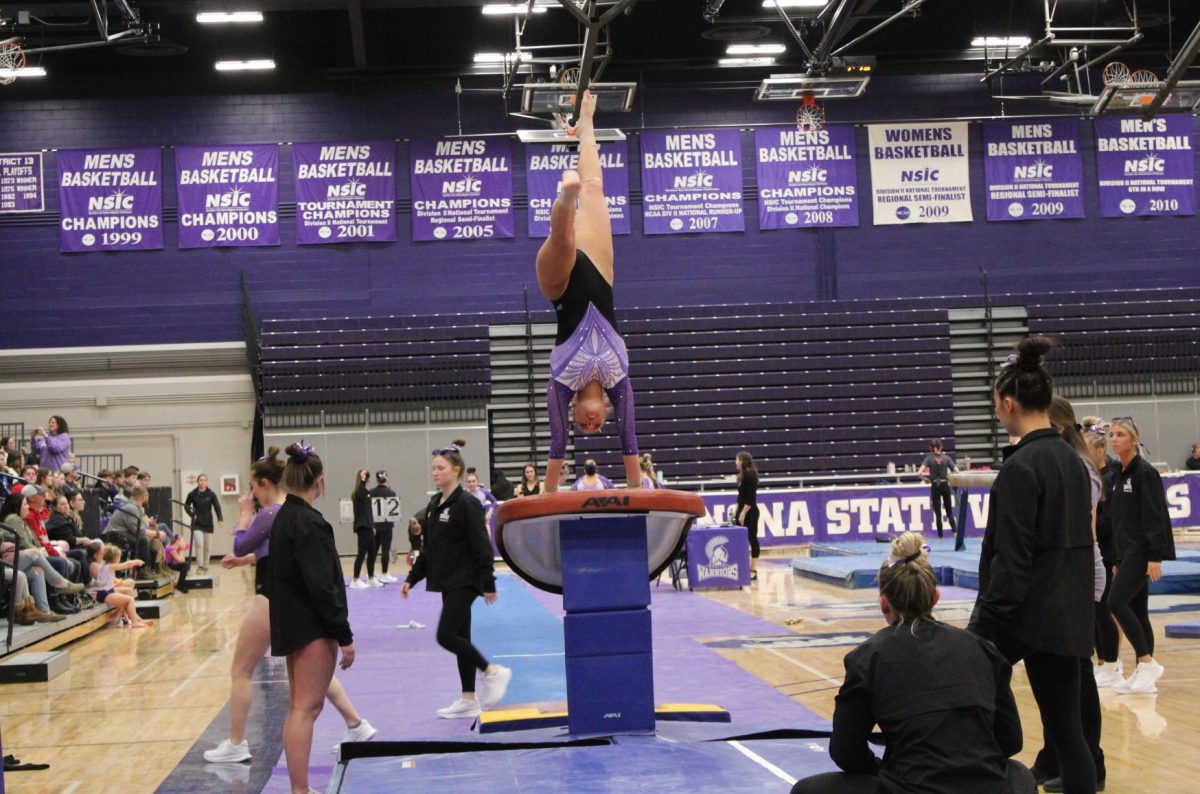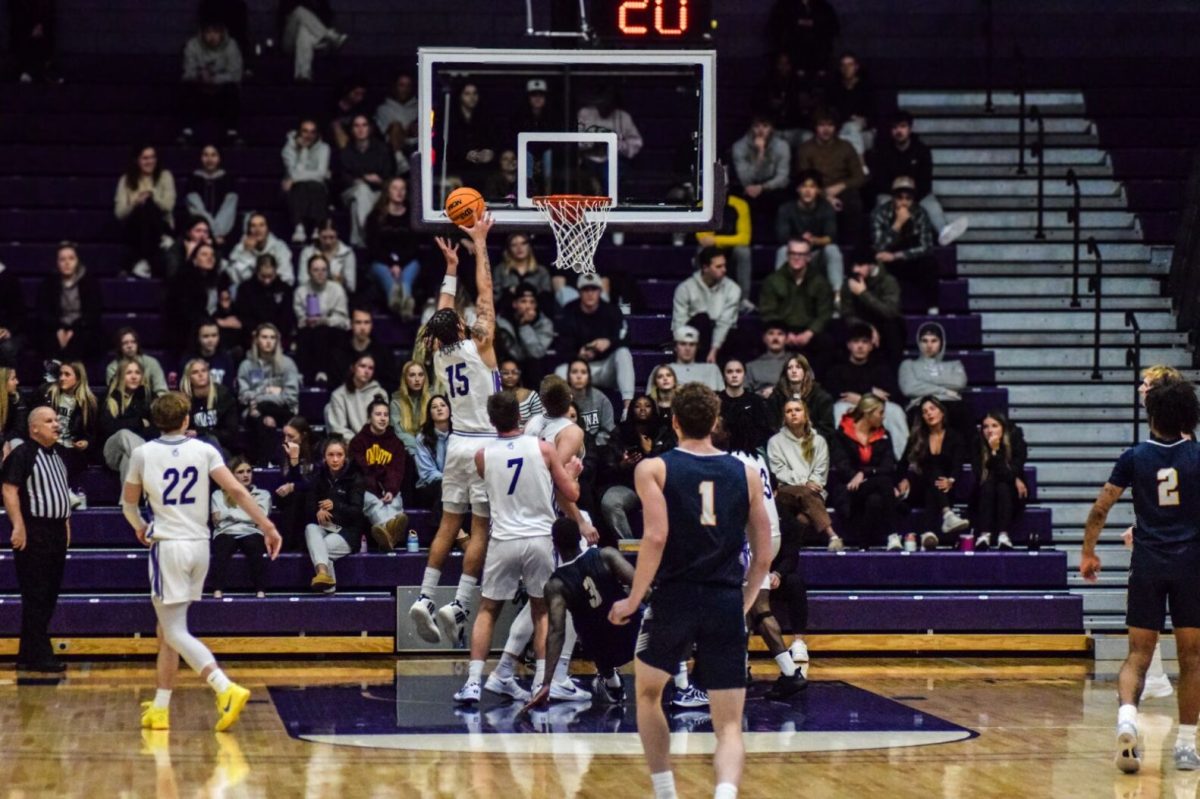Leah Perri/ Winonan
Winona State University wrapped up an eight week RecycleMania program this week—a nationwide competition among hundreds of universities to reduce waste and increase recycling on campus.
Winona State placed 167 out of 256 universities involved in the competition division, recycling over 122,000 pounds.
Students and staff members gathered Wednesday night in the Science Lab Center to celebrate the efforts of the competition. A number of student groups set up tables and displayed their recycling methods, some showing short video clips of the eight-week progress.
The event concluded with a screening of the film, “Bag It: Is Your Life Too Plastic?” The film, a 2010 American documentary, exposes the effects of plastic waste on the environment, animal ecosystems, and the human body.
Winona State efforts spanned campus-wide, as different student groups sought to contribute to RecycleMania in their own unique way. Sustainability house members, residence hall leaders and environmental clubs and groups all worked hard to raise awareness and get the rest of the campus involved.
Students Emily Thorpe and Tessa Wells helped coordinate the “Caught Green Handed” program in the residence halls for the duration of the event. This competition involved organizing residence hall teams which would try and catch people being “green,” in order to earn points. Team members would share a fact about recycling or waste reduction in order to increase awareness.
Thorpe, who is also the community mentor for Volans House on west campus, said it is important for Winona State to have fun, competitive events like these that students will actually take an interest in.
“Without something to grab the student’s attention, it is difficult to raise awareness,” Thorpe said. “I think [with RecycleMania] students did take notice and started thinking more about their recycling habits.”
Rachel Anderson, another student leader involved in RecycleMania, displayed her booth at the wrap-up event which focused on different methods of food composting, which she believes is often forgotten as a recyclable material.
While this year’s event was successful to say the least, Anderson still thinks more could be done on Winona State’s campus—starting by incorporating mandatory sustainability classes into university curriculum.
“We’ve made great progress over the years in diverting our waste,” Anderson said, “but many students don’t know what you can and cannot recycle, or other ways of contributing.”
Thorpe also said that students need to go back to the fundamentals of waste reduction: reduce, reuse, and recycle. Many times, Thorpe said, it seems students only focus on recycling.
“Recycling is very important, but we can’t forget the first two ‘R’s,’” she said. “Reduce the amount of plastics you buy and paper that you print. Reuse water bottles and other items.”
Once students pay attention to the small things they can do in their everyday lives to reduce waste, Winona State will see more of an improvement, Thorpe said.
With another year of RecycleMania in the books, Winona State is sure to keep incorporating these sustainability events on campus.









































